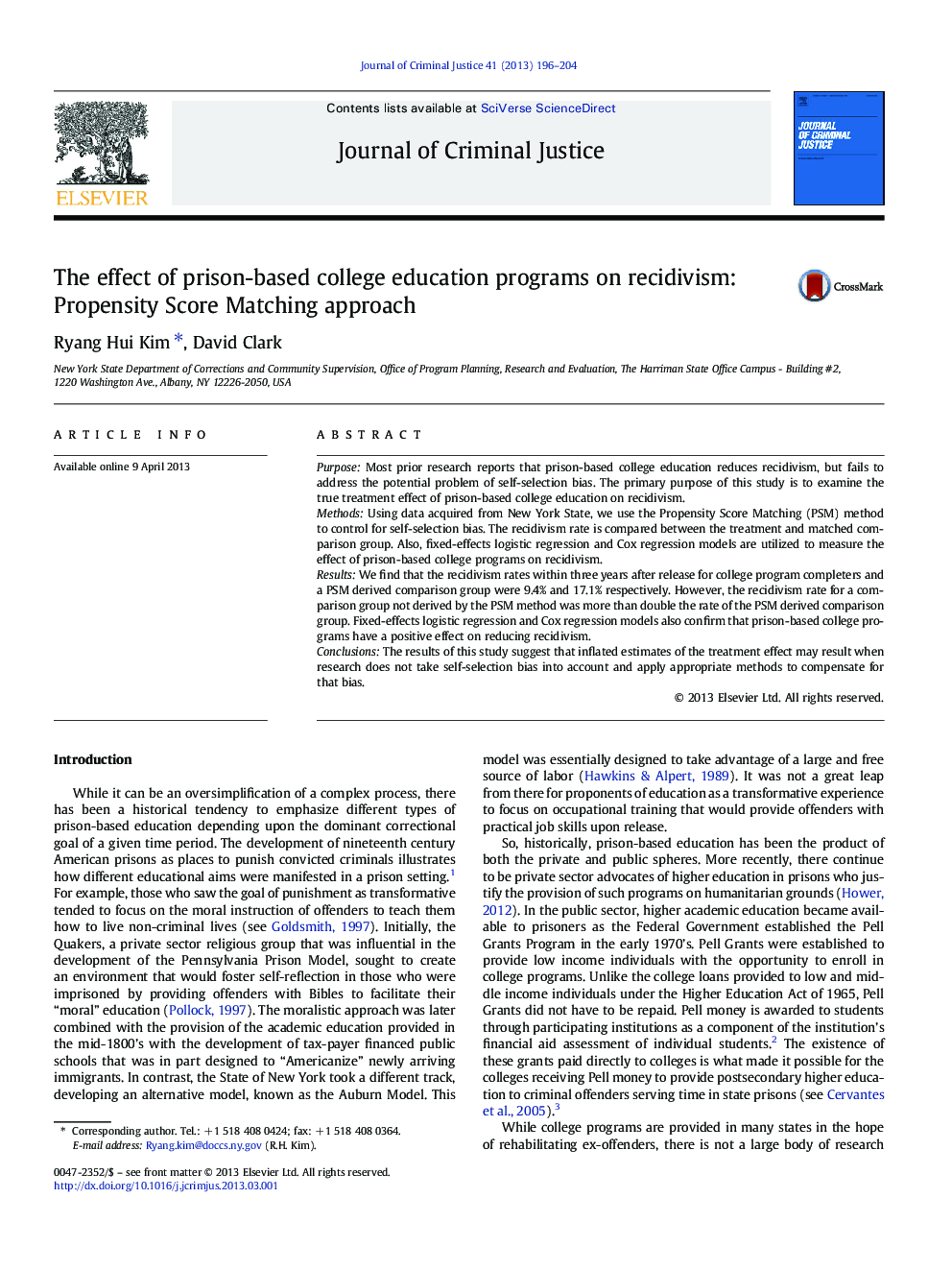| Article ID | Journal | Published Year | Pages | File Type |
|---|---|---|---|---|
| 882790 | Journal of Criminal Justice | 2013 | 9 Pages |
•Without considering self-selection bias, estimates of a treatment effect may be inflated.•When selection bias is controlled, prison-based college programs still show a significant reduction in recidivism.•Prisoners who earned a college degree stay crime-free in the community longer than their matched comparison group.
PurposeMost prior research reports that prison-based college education reduces recidivism, but fails to address the potential problem of self-selection bias. The primary purpose of this study is to examine the true treatment effect of prison-based college education on recidivism.MethodsUsing data acquired from New York State, we use the Propensity Score Matching (PSM) method to control for self-selection bias. The recidivism rate is compared between the treatment and matched comparison group. Also, fixed-effects logistic regression and Cox regression models are utilized to measure the effect of prison-based college programs on recidivism.ResultsWe find that the recidivism rates within three years after release for college program completers and a PSM derived comparison group were 9.4% and 17.1% respectively. However, the recidivism rate for a comparison group not derived by the PSM method was more than double the rate of the PSM derived comparison group. Fixed-effects logistic regression and Cox regression models also confirm that prison-based college programs have a positive effect on reducing recidivism.ConclusionsThe results of this study suggest that inflated estimates of the treatment effect may result when research does not take self-selection bias into account and apply appropriate methods to compensate for that bias.
